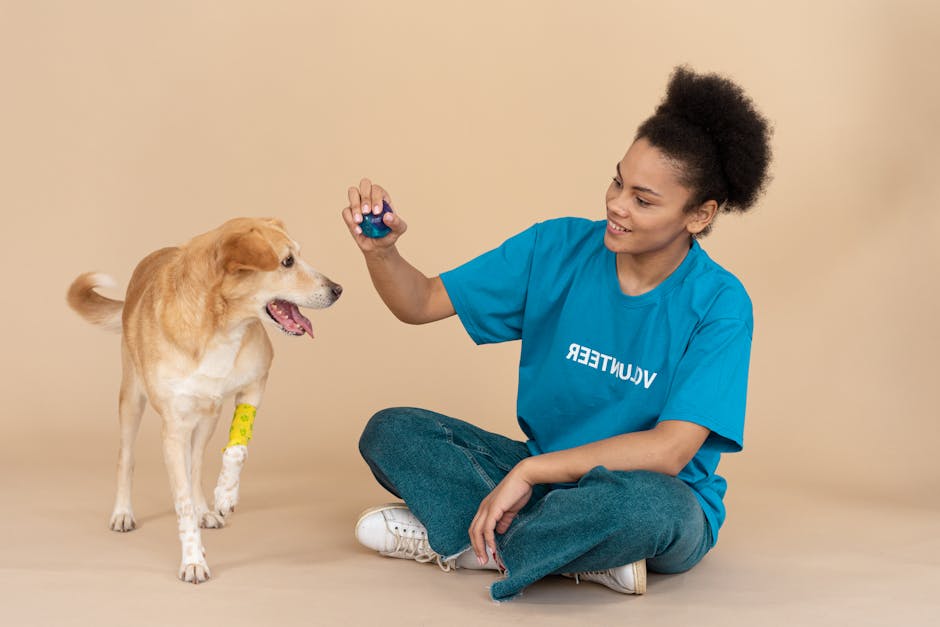Animals, in various forms, have long been interwoven with human society, providing companionship, entertainment, and, increasingly, therapeutic benefits. Pet therapy, a structured interaction between animals and humans, leverages this inherent connection to foster positive emotional, physical, and psychological outcomes. This article delves into the multifaceted advantages of this practice, exploring its applications and the science behind its success.
A Deep Dive into Animal-Assisted Interventions
Pet therapy encompasses a broad spectrum of animal-human interactions, from structured sessions in hospitals and schools to informal visits from companion animals in residential care settings. These interventions are not mere entertainment; they are carefully planned and guided interactions designed to elicit specific therapeutic responses. Key to understanding pet therapy’s effectiveness lies in recognizing the multifaceted nature of its benefits.
Emotional Well-being: A Calming Influence
A crucial facet of pet therapy is its capacity to mitigate feelings of isolation and loneliness. Animals, especially dogs and cats, offer unconditional love and acceptance, fostering a sense of connection and belonging that can be profoundly beneficial, particularly for individuals experiencing emotional distress. This comforting presence can reduce anxiety and promote feelings of emotional security, a vital component of mental well-being. Furthermore, engaging with animals often prompts positive emotions like joy, happiness, and contentment, potentially counteracting feelings of sadness or depression.
Physical Health Improvements: A Holistic Approach
Beyond emotional support, pet therapy can also demonstrably impact physical health. Studies show that interacting with animals can lower blood pressure and heart rate, promoting relaxation and cardiovascular health. This physiological response to animal companionship is demonstrably effective in reducing stress and anxiety, both known factors contributing to various physical ailments. Additionally, certain animal-assisted activities can encourage physical activity, for instance, walking a dog can foster increased mobility and exercise, boosting overall physical health.
Cognitive Stimulation: Beyond the Basics
A less frequently explored advantage of pet therapy involves cognitive stimulation. Caring for an animal requires consistent attention and routine, which can promote structured daily activities, particularly beneficial for individuals struggling with cognitive decline or memory impairment. Engaging in activities such as feeding, grooming, or playing with an animal can also serve as a valuable cognitive exercise. This structured involvement can enhance focus, concentration, and problem-solving skills in some cases.
Social Interaction and Communication: Bridging Gaps
Pet therapy can facilitate social interaction and communication, acting as a catalyst for connection. Shared experiences with animals can be a powerful bridge between individuals, fostering a common ground for interaction and communication. This is especially true in contexts like schools or hospitals where the presence of animals can create a less intimidating and more welcoming environment.
Specific Applications and Effectiveness
Pet therapy proves especially valuable in various settings:
* Hospitals and Residential Care Facilities: Bringing animals into these environments can enhance the mood and well-being of patients, fostering social interaction and reducing feelings of isolation. The calming presence of animals often helps to reduce anxiety and promote relaxation.
* Schools and Educational Settings: Pet therapy can support emotional development, improve social skills, and enhance learning in a variety of ways. Animals can act as non-judgmental companions, promoting social interaction and encouraging positive emotional responses.
* Mental Health Treatment: In conjunction with traditional therapies, pet therapy can act as a complementary approach. Animals often provide comfort and support, offering a unique channel for patients to express themselves and build emotional resilience.
* Veteran Support: Animals are increasingly recognized for their potential to aid veterans dealing with post-traumatic stress disorder (PTSD) and other related challenges. The non-judgmental nature of animal companionship often provides a sense of security and emotional support.
Ethical Considerations and Safe Practices
While the benefits are numerous, ethical considerations in pet therapy are paramount. Thorough training and evaluation of both animals and handlers are essential to ensure the safety and well-being of all involved. Selecting appropriate animals with the temperament to handle a variety of situations and environments is crucial to ensure everyone’s comfort and safety. Maintaining appropriate hygiene practices and implementing rigorous protocols for animal health and safety are essential aspects of responsible pet therapy.
Conclusion: A Future with Animal Allies
In conclusion, pet therapy demonstrates remarkable potential in improving the lives of individuals across diverse settings. From enhancing emotional well-being to promoting physical health and fostering social interaction, the benefits of animal companionship are substantial. This approach holds immense promise in further integrating animals into healthcare and social support systems, ultimately creating more supportive and healing environments for all. As research and understanding continue to expand, the role of animals in fostering human well-being is likely to evolve and grow.
